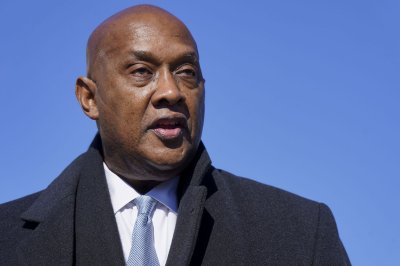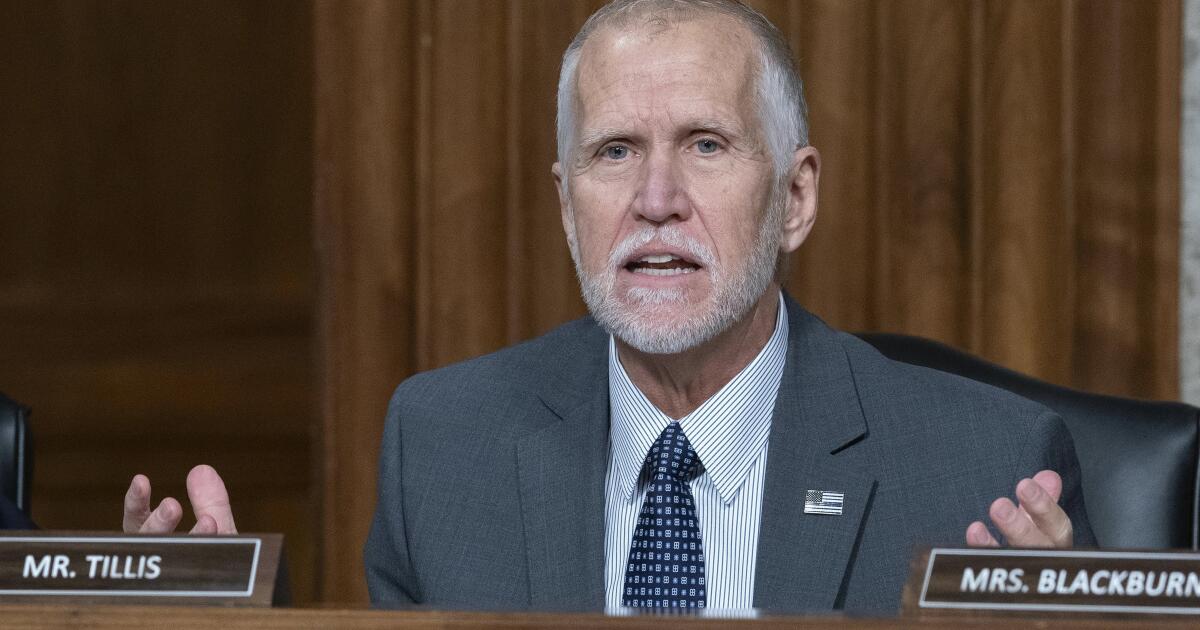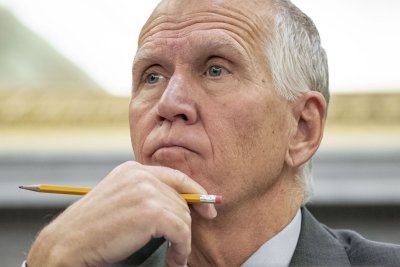Reporting from Sacramento — It’s been nearly four decades since a 25-year-old Frank Lindsay landed on California’s sex offender registry after he pleaded no contest to improperly touching a girl under 14.
He has not committed another crime since then, but state law requires Lindsay’s name to remain on the registry, which the public can see on government websites, for the rest of his life.
The listing cost him a business and sustainable livelihood, subjected him to death threats, prevented him from visiting his daughter’s school and resulted in injuries when he was attacked by an angry, hammer-wielding stranger who broke into his home after seeing his name on the registry, according Lindsay, news accounts at the time and his attorney, Janice Bellucci.
“You can’t work where you want. You can’t live where you want. It makes it virtually impossible to live a normal life. It can make you bitter,” said Lindsay, now 64 and a resident of Grover Beach in San Luis Obispo County.
Now, with more than 105,000 people on California’s registry, some criminal justice leaders, including Los Angeles County Dist. Atty. Jackie Lacey, are looking to overhaul the system.
They recently won state Senate approval of a proposal that would allow the names of those who committed lower-level, nonviolent sex crimes or are judged low risks to reoffend to be removed from the registry after 10 or 20 years.
“The state’s sex offender registry has lost significant value over time because it contains so many low-risk offenders with decades-old offenses,” Lacey said. “Our bill will improve public safety by creating a tiered system that will allow investigators to focus on those offenders who pose the greatest risk.”
The proposal has stirred up deep emotions in a state where voters have, in the past, approved initiatives that are tough on sex offenders.
Opponents of the bill include Erin Runnion, who in 2002 founded the Joyful Child Foundation, an Orange County advocacy group for victims, after the abduction, molestation and murder of her 5-year old daughter, Samantha.
“Californians should be able to find out if someone they met is a convicted sex offender before leaving a child in their care, or going with them on a date, or agreeing to tutor them, etc.,” Runnion said in an email.
California is one of only four states that require lifetime registration of sex offenders. The others are Alabama, South Carolina and Florida.
Current law requires people convicted of specific sex offenses in California to register for life when they leave prison, providing addresses, the names of employers, fingerprints, photos and license plate numbers. The law requires the state Department of Justice to make information on most registered sex offenders available to the public on its website. The website does not include the name of juvenile offenders or those convicted of incest to protect the identity of relatives who are victims.
Sex offenders in California are required to re-register annually, filling out extensive paperwork on their activities and locations because there are rules prohibiting them from being close to schools, parks and other locations where children congregate.
Local authorities spend large amounts of time processing the paperwork, much of it from people who have not committed a crime for years and don’t pose a risk, said state Sen. Scott Wiener (D-San Francisco), who introduced the new proposal to reform the system, Senate Bill 421.
“Right now, the sex offender registry is broken and it undermines public safety,” Wiener said, citing the time spent on paperwork for low-risk offenders and the huge list of names that makes it harder for police investigating new crimes to find potential offenders.
He said many early offenders landed on the list because of discrimination by police who targeted gay men who were having sex in parks or in cars during the 1950s and ‘60s.
“Whether you are a sexual predator or an 80-year-old gay man caught having sex in a park in 1958, you are treated the same. You are on that registry the rest of your life,” Wiener told his colleagues during the recent floor debate on his bill.
The law also affects 18-year-olds convicted of statutory rape for having consensual sex with 17-year-olds, he said.
He said those on the registry face barriers to stable housing and employment, often leading to drug addiction and mental illness.
The legislation would create three tiers for how sexual crimes are treated by the registry.
The first tier, where offenders are eligible for removal from the registry after 10 years, includes those convicted of misdemeanor indecent exposure, felony possession of child pornography with intent to distribute and misdemeanor sexual battery among other crimes.
Updates from Sacramento »
The second tier, which would allow removal from the registry after 20 years, includes those convicted of rape, forceable sodomy and lewd and lascivious conduct with a child under 14, the crime Lindsay committed.
Lifetime registration would still be required in the third tier, for those convicted of repeat felony child molestation, a second offense of a violent and serious sexual crime, kidnapping with intent to commit specific sexual crimes and those deemed “sexually violent predators.”
The latter determination is made by state officials when felons have been convicted of a violent sex offense against one or more victims and are diagnosed with a mental disorder that makes the person a danger to others.
The bill would create a process for sex offenders in the lower tiers to petition for removal from the registry when they became eligible, with cases reviewed by prosecutors.
The measure automatically clears from the registry the names of offenders in the 10- and 20-year tiers if their convictions are 30 years or older, which would include Lindsay.
The bill has drawn bipartisan opposition.
Democratic Sens. Steve Glazer of Stockton and Josh Newman of Fullerton joined eight Republicans in voting against the measure.
“I agree with the goal of the bill to better differentiate the type of offenders, but didn’t feel comfortable reducing the registration requirement for some of the more serious crimes in Tier 2,” Glazer said.
Republican Sen. Jeff Stone of Murrieta opposed any early removal from the registry, saying it is important for residents to know when sex offenders live in their neighborhood.
“Let’s protect victims of sexual predators and maintain the list of sexual registrants to protect the public,” Stone said.
In addition to Lacey, others who support the change include the American Civil Liberties Union of California, the Assn. of Deputy District Attorneys, the California Police Chiefs Assn., the Los Angeles Police Protective League and Equality California, a gay rights group.
“By creating a path off for people who are rehabilitated, SB 421 will make our system fairer and more just,” Wiener said.
Lindsay said he paid his debt to society by serving six months in jail for a crime he committed as a young man while he was drunk. He admits he “crossed the line” with the female victim but declined to provide more details.
He is hopeful that the Legislature will end what he said has been the “nightmare” of being kept on the registry for nearly four decades.
“That’s not who I am. It’s what I did approaching 40 years ago,” Lindsay said.
Having his name removed from the list “would be awesome,” he added. “I would be really excited to be able to take my passport and go on a journey somewhere in the world without having to worry about being tagged as a sex offender.”
[email protected]
Twitter: @mcgreevy99
ALSO
More parole agent caseloads exceed limits under new sex offender rules
Debate over sex offenders moves to court as California undertakes prison parole overhaul
Updates from Sacramento
































